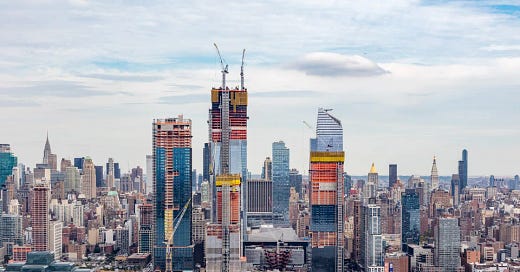Big Events Like the Olympics Matter — Just Not the Way You Think
A look at LA28, the USA 250th anniversary, and World Cup 2026

One of my favorite books about city-making is Dan Doctoroff’s account of his years as deputy mayor of New York City, Greater Than Ever. The book chronicles New York’s post-9/11 transformation, which was catalyzed in no small part by Doctoroff’s quest to host the 2012 Olympics there. The creation of Hudson Yards in Midtown Manhattan, Atlantic Yards in Brooklyn, new stadiums for the Yankees and Mets, and more all came out of efforts for the ultimately doomed bid.
While I wish for New York that its Olympics planning had looked more like what Paris’s approach to the games does, with an array of sustainability and equity focused moves — such as dramatically reducing car traffic in the city, making its river swimmable, banning disposable plastic bottles, creating permanently affordable housing out of the Olympic Village — it’s impressive how Doctoroff leveraged the Olympic bid to get leaders and locals alike to envision, plan for, and eventually develop new buildings and even neighborhoods in New York.
New York never got the Olympics, but now the U.S. is on the cusp of a cycle of major events: 11 American cities will be hosting the World Cup in 2026, the country (and Philadelphia in particular) will be celebrating its 250th anniversary the same year, and Los Angeles will host the Olympics in 2028. Collectively, a lot of international attention and tourism will be focused on the country in the coming half decade. These are once-in-a-generation opportunities — so are we seeing proportionately innovative investments in these cities? Not exactly.
Below, in a nicely long piece, I’ll explore what these big events could mean for American cities — and why winning may not be everything, but actually bidding is.




